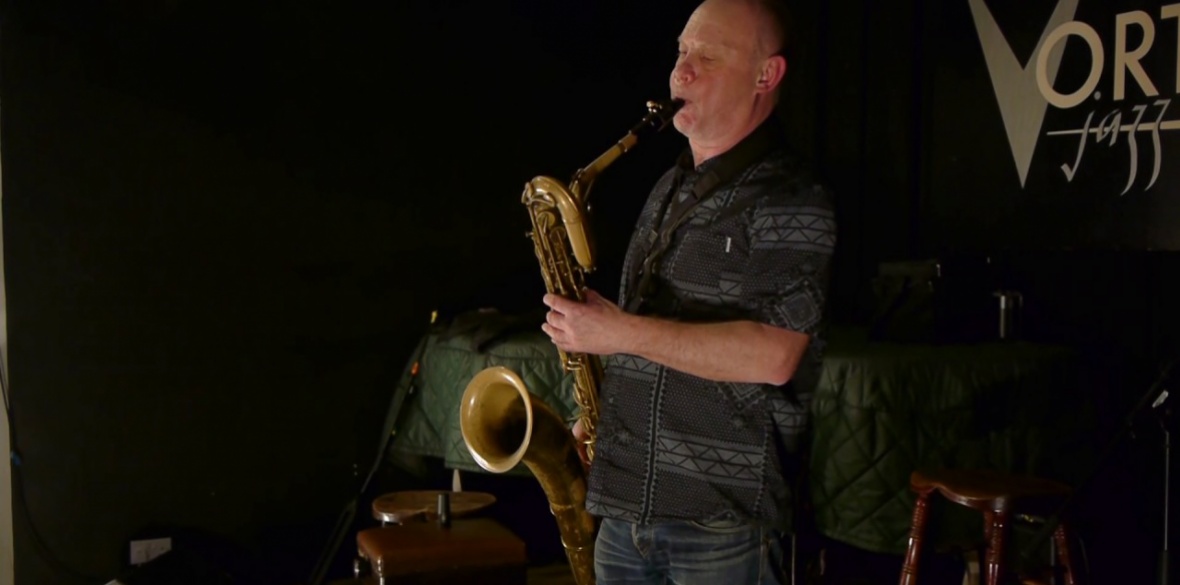This is the last article you can read this month
You can read more article this month
You can read more articles this month
Sorry your limit is up for this month
Reset on:
Please help support the Morning Star by subscribing here
“AT THE age of 14 I saw Jimi Hendrix and it changed my life.” Surprising words, perhaps, from a baritone saxophonist steeped in free jazz improvisation.
Not so. He recalls his sailor eldest brother who used to bring home instruments from his travels and that’s when Alan Wilkinson first picked up a guitar.
At Leeds College of Art he “pursued painting with a passion” until he became disillusioned with the idea of producing “objects for the bourgeois market.” Gradually, music took over and he began listening to US jazzmen like Coltrane, Shepp and the Art Ensemble of Chicago. But it was hearing Peter Brotzmann with the Globe Unity Orchestra that had a huge effect.
He was drawn to the baritone sax when hearing the Abdullah Ibrahim track Jabulani on which baritone saxophonist Hamiett Bluitt “steams out of the head with an awesome solo. That was it. I knew someone who had a bari but never played it. He sold it to me — it’s the same instrument I play now.”
In 1983 he co-founded the Termite Club in the Adelphi pub in Leeds, which became a key northern venue for free improvisation, inviting special guests like Evan Parker and Lol Coxhill. Wilkinson is now London-based, with the flimflam club in Stoke Newington his hub.
Wilkinson is clear that music can inspire reflection and change in people. “‘The Sheffield free guitarist Derek Bailey once told me that it makes no difference to ‘the man in the street’ what we play. I think life has taught me to disagree.
“It’s not communal music like sitting around a campfire singing songs we all know. It’s about finding something we didn’t know existed before that involves the listeners as much as the musicians.
“That feeds into the psyche and says we don’t have to listen to this or put up with that. Hopefully, these are the roots of change.”
“By its very nature, improvisation has to be inclusive,” he stresses. “We all take our messages out in our small ways any time we play to an unsuspecting rather than regular audience and our duty is to be honest in whatever we do.”
The relentless power and integrity of Wilkinson’s baritone horn roars out of his new album Three of a Kind: Live at Iklectic, a session with long-time trio mates, bassist John Edwards and drummer Steve Noble, who together made the epochal Obliquity album of 2006.
Wilkinson’s notes are as a sea of sound over Edwards’s throbbing, gargantuan bass and Noble’s storm of cymbals and drums. In the long opening track Full House, it’s as if nature’s elemental forces are set free, with rainforests and trees of sound resisting and reviving. It’s a living cry of survival and hope.
Perhaps that’s the eternal message and optimism of the music of the Wilkinson trio, never to be smothered.
Three of a Kind: Live at Iklectic is released on Bo’Weavil Recordings.











